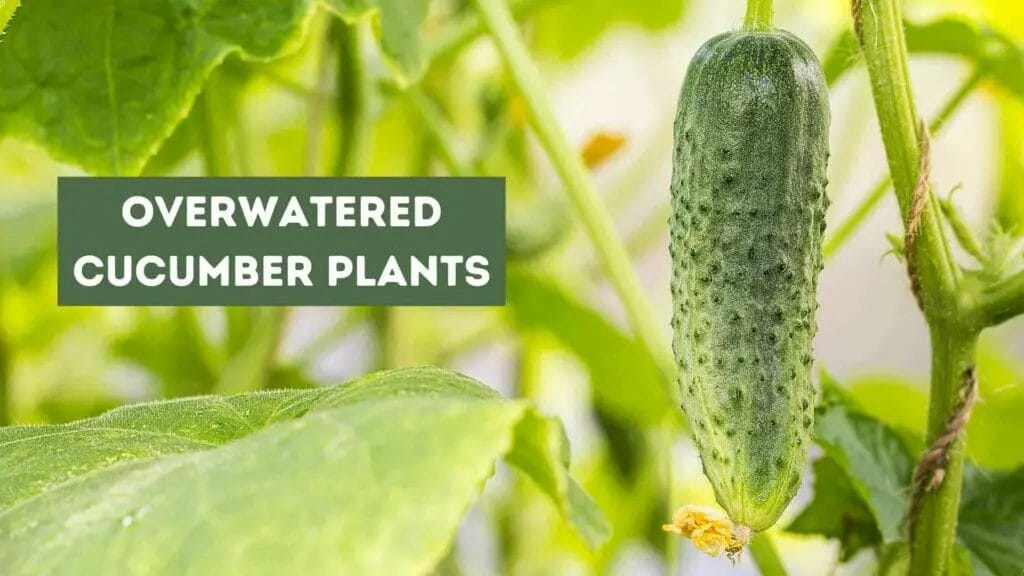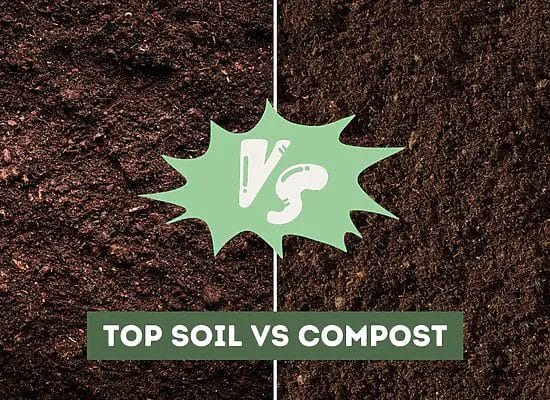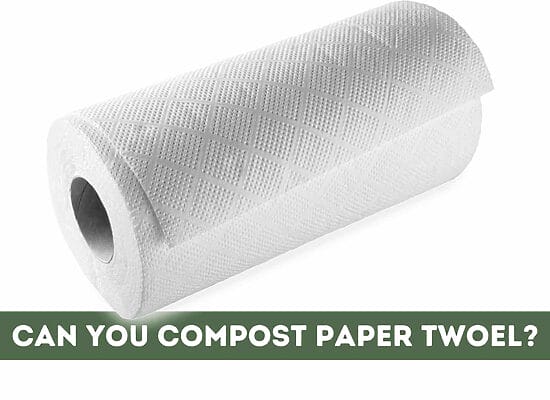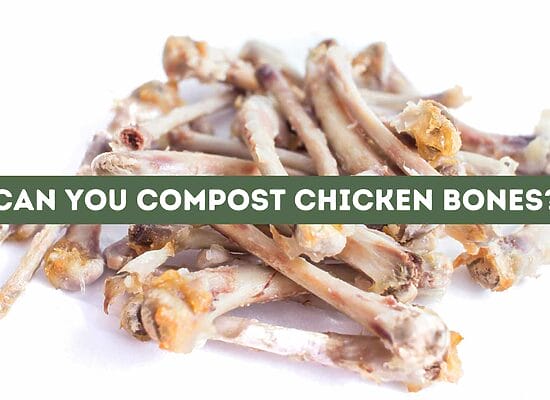
Overwatered cucumber plants can be a common issue that gardeners face, especially for those grown in containers. When cucumber plants receive too much water, the roots become suffocated, and the plant cannot access the oxygen needed for survival, leading to various problems such as yellow leaves, stunted growth, and root rot.
It is crucial to strike a balance in watering, as cucumber plants have a preference for moist, well-drained soil but can be prone to overwatering once they begin to bear fruit. Symptoms of overwatered cucumber plants may include wilting leaves if the soil is moist, while underwatered plants would have wilting leaves with dry soil.
Key takeaways:
- Overwatered cucumber plants can cause roots to suffocate and result in various problems like yellow leaves, stunted growth, and root rot.
- Common signs of overwatered plants include yellowing leaves, wilting, stunted growth, and brown, crispy leaf edges.
- Causes of overwatering can include an inaccurate watering schedule, poor drainage, and incorrect watering techniques.
- Overwatering can lead to root rot, reduced fruit quality, and increased insect and disease problems.
- Prevention strategies include proper watering techniques, soil preparation, using mulch, and ensuring adequate drainage.
- To revive overwatered cucumber plants, drain excess water, aerate the soil, avoid adding fertilizers, and manage diseases with appropriate control measures.
Identifying Overwatered Cucumber Plants
Overwatering is a common issue faced by gardeners, particularly when growing cucumber plants in containers. Both underwatering and overwatering can lead to wilting leaves; however, recognizing the symptoms and making a correct diagnosis are crucial to save the plants.
Symptoms
There are various symptoms of overwatered cucumber plants, and recognizing them in time can save your plants. Some common signs include:
- Yellowing leaves: When cucumber leaves turn yellow, it can be an indication of too much water.
- Wilting: Despite moist soil, overwatered plants may still exhibit wilting leaves.
- Stunted growth: Overwatered cucumber plants may show signs of stunted growth.
- Brown, crispy leaf edges: Prolonged exposure to excessive moisture can cause the edges of the leaves to become brown and crispy.
Common Causes
Overwatering cucumber plants can have multiple causes, including:
- Inaccurate watering schedule: Watering too frequently or not allowing the soil to dry out between watering sessions can lead to overwatering.
- Poor drainage: Soil that retains too much water may cause overwatering issues. Ensure that the soil drains well, and consider using raised beds or containers if necessary.
- Incorrect watering techniques: Ensure that you water the cucumber plants near the base rather than overhead watering, which can lead to an increased risk of overwatering and other issues such as disease and fungal problems.
By understanding the symptoms and causes of overwatered cucumber plants, you can take the necessary steps to help your plants recover and thrive.
Effects of Overwatering on Cucumber Plants
Overwatering cucumber plants can cause a variety of issues that can negatively impact the health and productivity of your plants. In this section, we will discuss three main effects of overwatering on cucumber plants:
- Root Rot;
- Reduced Fruit Quality;
- Increased Insect and Disease Problems.
Root Rot
When cucumber plants receive too much water, this can lead to suffocation of the roots and a lack of oxygen supply for the plant to survive. Consequently, this can result in root rot. Overwatered plants may display symptoms such as yellow leaves, wilting, and death.
Reduced Fruit Quality
Overwatered cucumber plants struggle to transport essential nutrients and water throughout the plant, leading to poor fruit development and reduced fruit quality. The cucumber plant leaves at the upper extremities can dry out and die if exposed to too much sun, which further impedes the plant’s ability to produce healthy fruits.
Increased Insect and Disease Problems
Excess water in the soil can create a favorable environment for various pests and diseases, especially fungal infections. Overwatered cucumber plants are more susceptible to these issues, and it is crucial to identify and address them quickly. If your plants develop a fungal infection, saving them may still be possible with quick identification and action.
Preventing Overwatering
Preventing overwatering in cucumber plants is essential to ensure their healthy growth, productivity, and overall well-being. Adequate water management plays a significant role in maintaining productive and disease-free plants. Let’s look at some practical tips to help in avoiding overwatering cucumbers.
Proper Watering Techniques
One effective way to prevent overwatering of cucumber plants is to provide the right amount of water. Cucumber plants typically need around 1-2 inches of water per week, with seedlings requiring less. It’s essential to adjust your watering schedule depending on factors such as weather and soil moisture to avoid overwatering.
Soil Preparation
Soil drainage plays a major role in proper watering. Well-drained soil ensures that water does not accumulate and create a constantly wet environment that can cause root rot. When planting cucumbers, choose a spot with good drainage or use raised beds to improve drainage. Incorporate organic matter, such as compost, into the soil to improve texture and water retention.
Mulching
Mulch helps maintain a stable soil moisture level and is, therefore, helpful in preventing overwatering. Using a layer of organic mulch, like straw or wood chips, can also help lift cucumber fruits off wet soil, preventing rot. To fix overwatered cucumber plants, place three inches of mulch around the vines and under the runners.
Drainage
Proper drainage is crucial for avoiding overwatered cucumber plants. If you’re growing cucumbers in containers, use pots with large holes to allow water to escape more easily. If you’re planting them in the ground, consider using raised beds or mounds to improve drainage. You can also improve the overall drainage of your garden by creating a slight slope and adding organic material like compost or peat moss.
Reviving Overwatered Cucumber Plants
Overwatered cucumber plants can suffer from various issues that negatively impact their health and productivity. However, it is possible to revive these plants if timely and appropriate measures are implemented. Here we’ll discuss various steps to help rejuvenate overwatered cucumber plants, including:
- Draining excess water;
- Aerating the soil;
- Carefully managing fertilizers;
- Controlling diseases.
Draining Excess Water
First and foremost, stop watering the plant and allow it to dry out. This can take several days. Don’t water again until you’re confident the roots and soil are dry. If you’re growing in a container or pot, move the plant out of direct sunlight and into the shade to protect the upper leaves.
Aeration
If the soil is too wet, try aerating it to improve drainage. Aerating the soil can help increase airflow and reduce compaction, allowing the overwatered cucumber plant to recover more quickly. Use a garden fork or aerator to create small holes in the soil around the plant.
Fertilizers
During the recovery process, avoid adding fertilizer to overwatered cucumber plants. Excessive water in the soil dilutes the nutrients, which may lead to nutrient deficiencies. Once the plant has recovered and the soil has dried, you can apply a balanced fertilizer according to the recommended dosage on the product label.
Disease Control
Overwatering can lead to various diseases in cucumber plants, such as root rot and fungal infections. To mitigate these issues, remove any wilted, yellow, or brown leaves from the plant, as they are no longer able to photosynthesize and may contribute to spreading diseases. Monitor the plant closely for any signs of infection and treat it with appropriate fungicides or other disease control measures if needed.
Conclusion
Overwatered cucumber plants can be a challenging issue for gardeners, yet it is entirely possible to prevent and revive affected plants with the right knowledge and strategies.
By understanding the symptoms, causes, and prevention methods, as well as the steps to rejuvenate struggling plants, you can enhance the overall success of your gardening endeavors.
Don’t let overwatered plants ruin your harvest. Rediscover the essential insights in this article to help your cucumber plants thrive all season long. Happy gardening!












